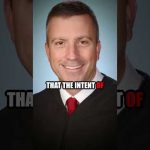In recent discussions about foreign policy, the ongoing situation in Ukraine has garnered significant attention, especially following a notable gathering at the White House. President Biden hosted European leaders alongside Ukrainian President Volodymyr Zelensky, aiming to project a united front against Russian aggression. An influential piece from a Wall Street Journal columnist praised this visual display, suggesting that it sent a message that Vladimir Putin likely did not welcome. Meanwhile, debates continue on how best to support Ukraine and deter further Russian advances without provoking a broader conflict.
Senator Jack Reid, a prominent figure on the Senate Armed Services Committee, weighed in on the implications of these high-level meetings. He acknowledged the president’s efforts to energize the diplomatic process but noted that no substantial outcomes had emerged. Reid pointed out that Putin’s unwavering stance—demanding the surrender of Ukrainian territory—poses an ongoing challenge. The situation leaves Ukraine in a precarious position, though Reid assured that the Ukrainians remain willing to fight.
Discussions about security guarantees for Ukraine have become central to the dialogue. While some propose arrangements similar to NATO’s Article 5 protections—offered without actual NATO membership—others question the effectiveness of such guarantees. Critics argue that Putin’s historical reluctance to invade nations with NATO protections creates a complicated backdrop: a promise from the West without the full backing of NATO’s military might. According to Reid, a strong bilateral relationship with Ukraine and other allies may be necessary to protect Ukrainian sovereignty, but the exact details remain murky, and clarity is still a work in progress.
When addressing the role of the U.S. military, Reid suggested that air power could serve as a vital component of support, but he emphasized that the real question is who would be on the ground defending Ukraine. The absence of NATO troops complicates the matter, as other forces may be limited by political challenges. Reid highlighted the need for focused discussions among the U.S., Europe, and Ukraine to develop a strategy that can actualize the proposed security agreements. The current state of affairs, marked by a lack of clear communication, leaves critics concerned that time is not on Ukraine’s side.
Sanctions against Russia are another tool being discussed, as more than 80 senators reportedly support a sanctions bill targeting Russia and its trade partners, such as India and China. While some experts believe these measures can influence Putin’s strategy, Reid emphasized they must be backed by strong enforcement mechanisms. He articulated the challenges posed by Russia’s ability to evade sanctions through various means, suggesting that without proper resources to enforce compliance, sanctions may remain largely symbolic. To truly support Ukraine, Reid proposed a combination of increased military aid, more robust enforcement of sanctions, and leveraging frozen Russian assets as a means to shift the balance in favor of Ukraine.
With a mixture of diplomacy and potential military strategy on the table, the upcoming weeks will be crucial in determining how the U.S. and its allies decide to act in the geopolitical theater surrounding Ukraine. As the situation develops, the emphasis remains on demonstrating solidarity with Ukraine while also navigating the turbulent waters of international diplomacy with a wary eye on Putin’s next moves.




